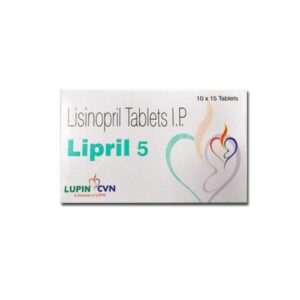Doxycycline Information
What is Doxycycline used for?
- It is used to treat pimples (acne).
- It is used to treat or prevent bacterial infections.
- It is used to prevent malaria.
- It is used to treat swelling of the tissue around the teeth (periodontitis). It is used with scaling and root planing.
- It is used to treat rosacea.
- It may be given to you for other reasons. Talk with the doctor.
Pronunciation
(doks i SYE kleen)
Frequently reported side effects of this drug
- Tooth discoloration
- Nausea
- Vomiting
- Diarrhea
- Lack of appetite
Other side effects of this drug: Talk with your doctor right away if you have any of these signs of:
- Liver problems like dark urine, fatigue, lack of appetite, nausea, abdominal pain, light-colored stools, vomiting, or yellow skin
- Pancreatitis like severe abdominal pain, severe back pain, severe nausea, or vomiting
- Chest pain
- Not able to pass urine
- Change in amount of urine passed
- Chills
- Sore throat
- Trouble swallowing
- Bruising
- Bleeding
- Joint pain
- Muscle pain
- Fast heartbeat
- Fast breathing
- Throat irritation
- Skin discoloration
- Flushing
- Severe dizziness
- Passing out
- Severe loss of strength and energy
- Swollen gland
- Vaginal itching or discharge
- Headache
- Blurred vision
- Double vision
- Blindness
- Clostridioides(formerly Clostridium) difficile-associated diarrhea like abdominal pain or cramps, severe diarrhea or watery stools, or bloody stools.
- Stevens-Johnson syndrome/toxic epidermal necrolysis like red, swollen, blistered, or peeling skin (with or without fever); red or irritated eyes; or sores in mouth, throat, nose, or eyes.
- Signs of a significant reaction like wheezing; chest tightness; fever; itching; bad cough; blue skin color; seizures; or swelling of face, lips, tongue, or throat.
Medication Safety Issues
Sound-alike/look-alike issues:
Doxycycline may be confused with dicyclomine, doxepin, doxylamine
Doxy100 may be confused with Doxil
Monodox may be confused with Maalox
Oracea may be confused with Orencia
Vibramycin may be confused with vancomycin, Vibativ
International issues:
Oracea (US brand name) is marketed in Canada under the brand name Apprilon
Product Availability
LymePak (doxycycline tablets): FDA approved June 2018; anticipated availability is currently unknown. Information pertaining to this product within the monograph is pending revision. LymePak is indicated for the treatment of early Lyme disease due to Borrelia burgdorferi in adults and pediatric patients ≥8 years of age weighing ≥45 kg. Consult the prescribing information for additional information.
Storage and Stability
Capsule, tablet, delayed-release tablet: Store at 20°C to 25°C (68°F to 77°F); excursions permitted between 15°C and 30°C (59°F and 86°F). Protect from light and moisture.
Syrup, oral suspension: Store below 30°C (86°F); protect from light.
Injection: Store intact vials at 20°C to 25°C (68°F to 77°F); protect from light. Stability of IV infusion varies based on solution; refer to manufacturer’s labeling.
Adverse Reactions
Cardiovascular: Hypertension
Central nervous system: Anxiety, pain
Dermatologic: Skin hyperpigmentation
Endocrine & metabolic: Increased lactate dehydrogenase, increased serum glucose
Gastrointestinal: Abdominal distention, abdominal pain, diarrhea, esophageal ulcer, esophagitis, upper abdominal pain, xerostomia
Hepatic: Increased serum aspartate aminotransferase
Infection: Fungal infection, influenza
Neuromuscular & skeletal: Back pain
Respiratory: Nasal congestion, nasopharyngitis, sinus headache, sinusitis
Rare but important or life-threatening: Anaphylactoid reaction, anaphylaxis,
angioedema, anorexia, bulging fontanel, Clostridioidesdifficile associated diarrhea, Clostridioidesdifficile colitis, dental discoloration, DRESS syndrome, dysphagia, enamel hypoplasia, enterocolitis, eosinophilia, erythema multiforme, erythematous rash, exacerbation of systemic lupus erythematosus, exfoliative dermatitis, glossitis, headache, hemolytic anemia, hepatotoxicity, hypersensitivity reaction, increased blood urea nitrogen, increased serum alanine aminotransferase, inflammatory anogenital lesion, intracranial hypertension, Jarisch-Herxheimer reaction, maculopapular rash, nausea, neutropenia, pancreatitis, pericarditis, serum sickness, skin hyperpigmentation, skin photosensitivity, Stevens-Johnson syndrome, thrombocytopenia, thyroid disease (brown/black discoloration; no dysfunction reported), toxic epidermal necrolysis, urticaria, vomiting –



